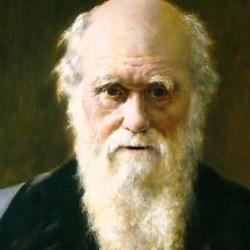Lenn Goodman (Creation and Evolution) cites Darwin’s son’s claim that “One of the greatest services rendered by my father to the study of Natural History is the revival of Teleology. The evolutionist studies the purpose or meaning of organs with the zeal of the older Teleologist, but with far wider and more coherent purpose” (138).
Goodman finds parallels between Darwin on the one hand and Aristotle and Genesis on the other: “Clearly, evolution is no mere product of chance. It’s driven by what Darwin called the struggle for survival. That has two sides. Externally it means natural selection, not a causally empty concept at all but a portmanteau term standing for the sum of environmental challenges. What energizes the struggle from within is the claim to life that every living being makes. The struggle, in its inner dimension, then, is pursuit of a good. Hence, Darwin’s kinship with Aristotle – and with Genesis. Like Aristotle, Darwin finds nature comprehensible. Like Genesis, he does not find it pointless or devoid of value. For Darwin, as for Aristotle, what makes sense of life forms is capability. For Darwin, as for Genesis, there is a good in every living being: local means serving local ends” (144).
Biologists hide away the issue of purpose, but Goodman argues that it’s hard to eradicate it. When scientists try to delete purpose, they can up undermining the scientific enterprise, which is to explain natural phenomena: “can we explain the shape of a bladderwort or pitcher-plant or the snapping shut of a Venus flytrap, without implying that its ‘leaves are modified for the capture of insects’? Can we do physiology without assuming that roots are useful for taking up materials, and kidneys for filtering the blood?” (139). In each case, the explanation is a “reason for which” of some phenomena or other.












